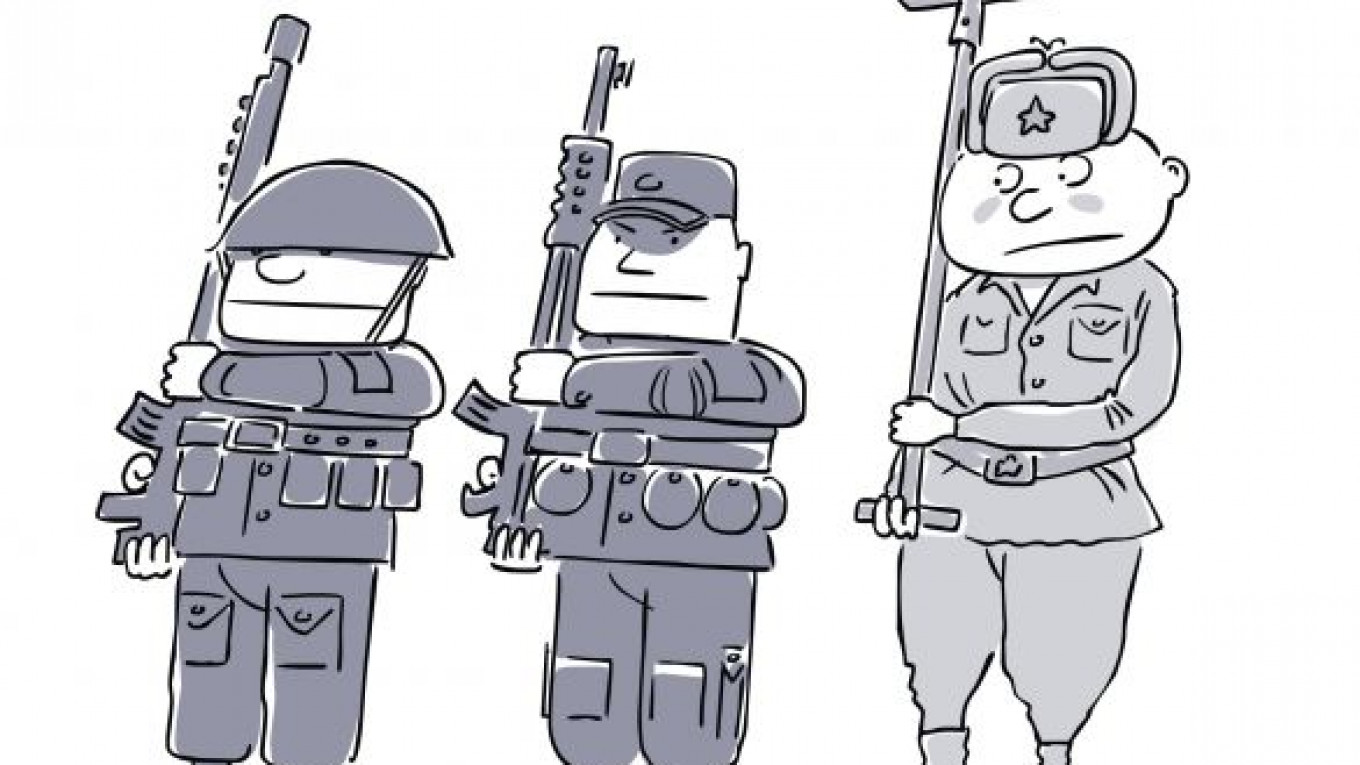As usual, Ukraine has got one up on Russia. No, I am not referring to Kiev's intention to sign an agreement to increase economic ties with the European Union in November and not to Moscow's unsubstantiated claims that Ukraine wants to join NATO. I am referring to an even more painful blow to the Moscow leadership.
Ukrainian President Viktor Yanukovych has made good on his campaign promise by signing a decree for the country to switch to an exclusively professional army. "There will no longer be a draft," Yanukovych recently declared. Conscripts will only be used for interior troops.
Unlike Russia, Ukraine has instituted a basic principle: better to have a smaller, but more capable, army than an ineffective and wasteful million-man force.
Yanukovych stressed that the weapons systems used by the army are now so advanced that they should be manned by top specialists only. Only those young Ukrainians who are drawn to the military profession as a career or for other reasons should become contract soldiers, Yanukovych said. He promised to carry out the state program for military reforms by 2017, by which time the army should number 122,000 soldiers, down from the current 184,000.
It is worth noting that Ukrainian Defense Minister Pavel Lebedev said the Defense Ministry has calculated it will need 131 billion hryvnia ($16 billion) to implement reforms. To attract contract soldiers, the government is prepared to offer a system of financial incentives. For example, Lebedev said that salaries for contract personnel will be doubled in 2014, with monthly wages in selected categories reaching 5,000 hryvnia ($612).
It is also significant that, in speaking about the complexity of modern military equipment and the need for highly trained professionals to operate it, Yanukovych was practically quoting verbatim Russian Defense Minister Sergei Shoigu, who recently said conscripts would have to serve five years to master today's military hardware.
Despite this, Shoigu prefers to speak of a transition to a professional army as an unlikely prospect. Russia's top brass usually explain the problem as stemming from a lack of funds. But Ukraine is definitely no richer than Russia and is already switching over to a professional army.
The whole point of a conscript army is to prepare enough reserve soldiers during peacetime to be able to double or triple the ranks of the army in the event of war. But the demographics in both Russia and Ukraine make that infeasible. Last year, for example, there were only about 640,000 males who were eligible for the draft at age 18. To staff a million-man army, 550,000 of that total would have to be drafted, which is an impossible task. The only realistic way to increase both armies' combat effectiveness is to greatly reduce their size and to achieve greater efficiency through improved quality.
Ukrainian military leaders and politicians chose not to deceive themselves. They are not afraid to cut the number of soldiers and generals by one-third. Only combat units and certain troop formations such as naval forces and airborne troops were unaffected by the cuts because contract soldiers already comprise about 90 percent of their staffs. The number of soldiers at constant battle readiness will remain at 70,000, while positions not directly linked to providing combat effectiveness will be cut, Lebedev said. That applies particularly to military medics, instructors and builders.
In fact, Ukraine has copied almost all of the measures implemented by the much-criticized former Russian Defense Minister Anatoly Serdyukov, whose reforms paved the way for Russia to make the transition to a professional army. In contrast to Russian leaders, Ukrainian officials apparently are not held hostage by their military lobby. Nor are they obsessed with trying to achieve the unachievable status of a superpower.
Thus, Ukraine, a country trudging its way toward Europe, will become the first country in the Commonwealth of Independent States to switch to a volunteer, professional army. Not surprisingly, those in Russia who advocate continuing the slave-like conscript army said Kiev should not tell Moscow what to do and that Ukraine can afford the luxury of a smaller army because, unlike Russia, it has no external enemies.
Meanwhile, Kazakhstan, ostensibly Russia's closest ally, delivered another blow. First Deputy Defense Minister and head of the General Staff, Saken Zhasuzakov announced that the republic planned to make a full transition to a professional army within two years. "By 2016," he said, "99 percent of all army personnel will be professionals serving on contract."
In contrast to Ukraine, however, Kazakhstan faces a very real external threat because radical Islamists will undoubtedly attempt to establish control over Central Asian republics of the CIS after the U.S. and coalition forces withdraw from Afghanistan in 2014. Notably, Astana understands that a professional army will provide greater security. Unlike Russia, both Ukraine and Kazakhstan understand a basic principle: Quality is always preferable to quantity.
Alexander Golts is deputy editor of the online newspaper Yezhednevny Zhurnal.
A Message from The Moscow Times:
Dear readers,
We are facing unprecedented challenges. Russia's Prosecutor General's Office has designated The Moscow Times as an "undesirable" organization, criminalizing our work and putting our staff at risk of prosecution. This follows our earlier unjust labeling as a "foreign agent."
These actions are direct attempts to silence independent journalism in Russia. The authorities claim our work "discredits the decisions of the Russian leadership." We see things differently: we strive to provide accurate, unbiased reporting on Russia.
We, the journalists of The Moscow Times, refuse to be silenced. But to continue our work, we need your help.
Your support, no matter how small, makes a world of difference. If you can, please support us monthly starting from just $2. It's quick to set up, and every contribution makes a significant impact.
By supporting The Moscow Times, you're defending open, independent journalism in the face of repression. Thank you for standing with us.
Remind me later.







